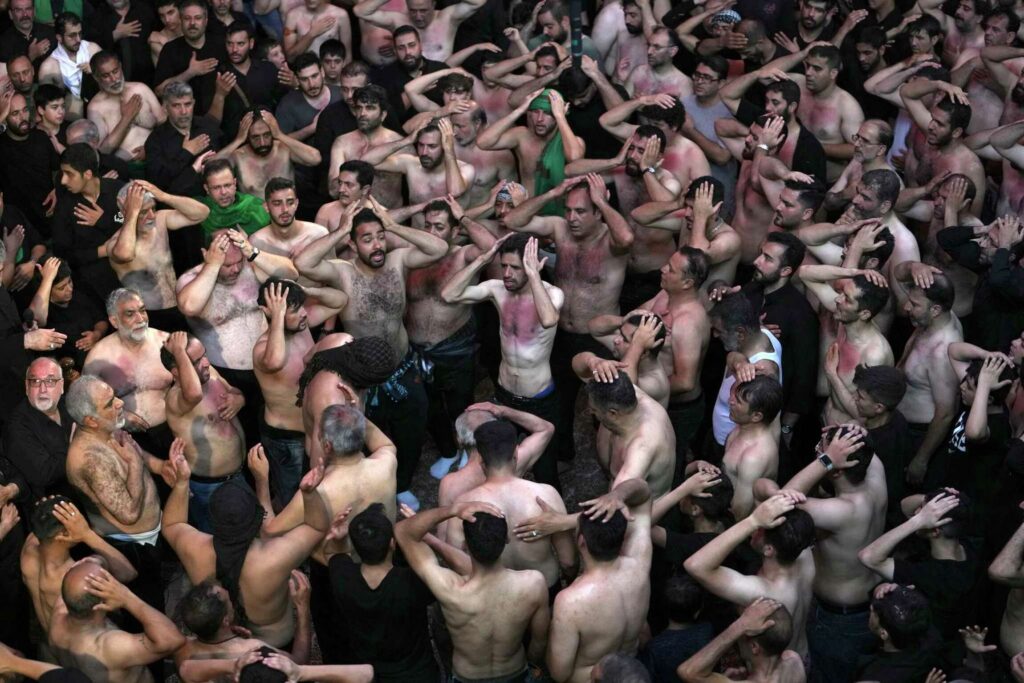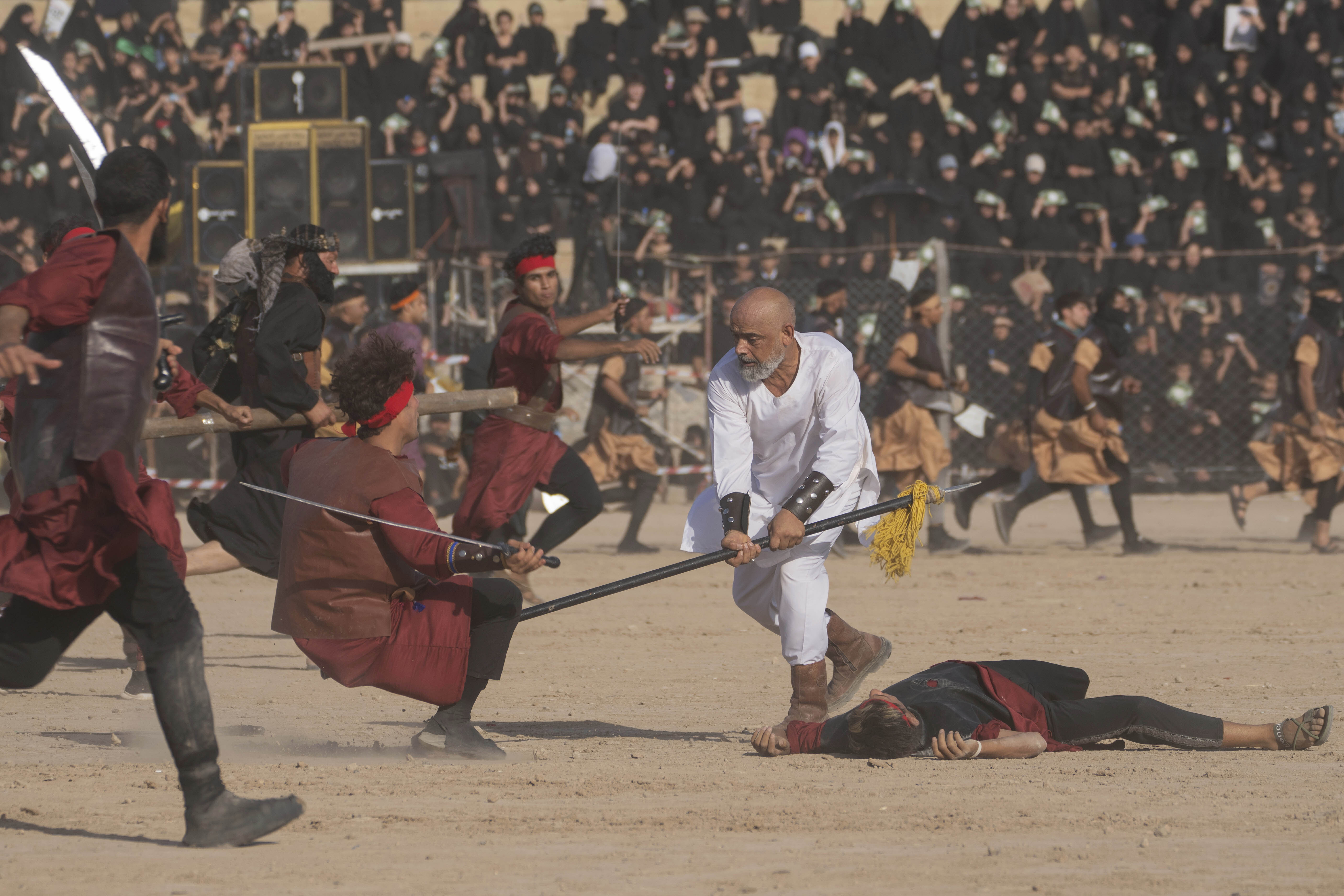The leader of Lebanon’s Shiite militant group Hezbollah said Saturday that if governments of Muslim-majority nations do not act against countries that allow the desecration of the Quran, Muslims should “punish” those who facilitate attacks on Islam’s holy book.
The comments by Hassan Nasrallah came in a video address to tens of thousands gathered in Beirut’s southern suburbs to mark Ashoura, a Shiite holy day commemorating the 7th century martyrdom of the Prophet Muhammad’s grandson Hussein.
Nasrallah often uses religious occasions to send political messages to followers, and on Saturday slammed recent incidents in which the Quran was burned or otherwise desecrated at authorized demonstrations in Sweden and Denmark.
He said Muslims should watch for the outcome of an emergency meeting of the Organization of Islamic Cooperation, scheduled to take place in Baghdad on Monday to discuss the organization’s response to the Quran burnings.
The organization and its member states should “send a firm, decisive and unequivocal message to these governments that any repeat of the attacks will be met with a boycott,” Nasrallah said. If they do not, he said, Muslim youth should “punish the desecrators.”
He did not elaborate on what such a boycott and punishment should entail.
Members of the crowd, who carried banners with religious slogans alongside the flags of Hezbollah, Lebanon and Palestine, chanted, “Oh, Quran, we are at your service; Oh, Hussein, we are at your service.”
Shiites represent over 10% of the world’s 1.8 billion Muslims and view Hussein as the rightful successor to the Prophet Muhammad. Hussein’s death in battle at the hands of Sunnis at Karbala, south of Baghdad, ingrained a deep rift in Islam and continues to this day to play a key role in shaping Shiite identity.
Millions of Shiite Muslims in Iran, Afghanistan, Pakistan, and around the world on Friday commemorated Ashoura, while Saturday marked the culmination of the observances in countries such as Lebanon, Iraq, and Syria.

Hundreds of thousands of pilgrims gathered in the Iraqi city of Karbala, where Hussein is entombed in a gold-domed shrine. In the streets of the Baghdad suburb of Sadr City, mourners gathered to watch reenactments of the Battle of Karbala and Hussein’s death.
In the streets, young men clad in black and white slashed their heads with swords and knives to demonstrate their grief. Friends swabbed each other’s heads with tissues and handed each other water.

In Syria’s capital, Damascus, the crowds were mourning not only the death of Hussein but a deadly attack in the suburb of Sayida Zeinab, home to a shrine to Zeinab, the daughter of the first Shiite imam, Ali, and granddaughter of the Prophet Muhammad.
A bomb hidden in a motorcycle exploded there on Thursday, killing at least six people and wounding dozens more. On Tuesday, another bomb in a motorcycle had wounded two people.
Associated Press


Leave a Reply
You must be logged in to post a comment.